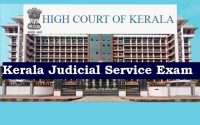$100 Website Offer
Get your personal website + domain for just $100.
Limited Time Offer!
Claim Your Website NowMalankara church case: SC rebukes Kerala HC judge over ‘indiscipline’
Source: hindustantimes.com
The Supreme Court on Friday came down heavily on a judge of the Kerala high court for issuing orders purportedly in contravention to the top court’s direction in the Malankara church dispute case.
It took strong exception to the HC’s tinkering of its 2017 verdict on right to conduct administration and prayers in churches in a dispute between two factions.
Justice Arun Mishra, who led the bench, was so upset that he took the Kerala HC judge’s name in the open court and said: “Tell the judges in Kerala that they are part of India.”
“It is a very objectionable order. Who is this judge? Tell his name loud. Let everyone know. Who is this judge? What kind of judge is he?” he said, visibly angry with how “judicial indiscipline was developing.”
The top court set aside the Kerala High Court order on March 8 that prayer services at the churches should be performed alternately by the two rival factions of the Malankara Church.
The bench, also comprising Justice MR Shah, was hearing the matter related to the implementation of the apex court order on giving control of 1,100 parishes and their churches under the Malankara Church to the Orthodox faction.
The apex court in 2017 said prayer services have to be performed in consonance with the 1934 Malankara Church Constitution and guidelines.
Father Isaac Mattemmel Cor Episcopa, the Vicar of St Mary’s Orthodox Syrian Church, had filed an appeal against the HC order. On July 2, the apex court had observed that “is Kerala above rule of law” and warned that chief secretary may be put behind bars for not implementing its 2017 judgement.
Jacobite church followers have been accused of preventing access to the Orthodox faction, despite orders of the high court and the Supreme Court.
The St Mary’s Orthodox Church and others in its appeal had said the HC had “closed” their two writ petitions on the issue, after taking note of arguments of the counsel appearing for the state that earnest steps have been taken by them for an amicable resolution of the disputes between the factions.
The petitioners have claimed in the top court that some of the directions passed by the high court in the matter were contrary to the top court’s directive.



